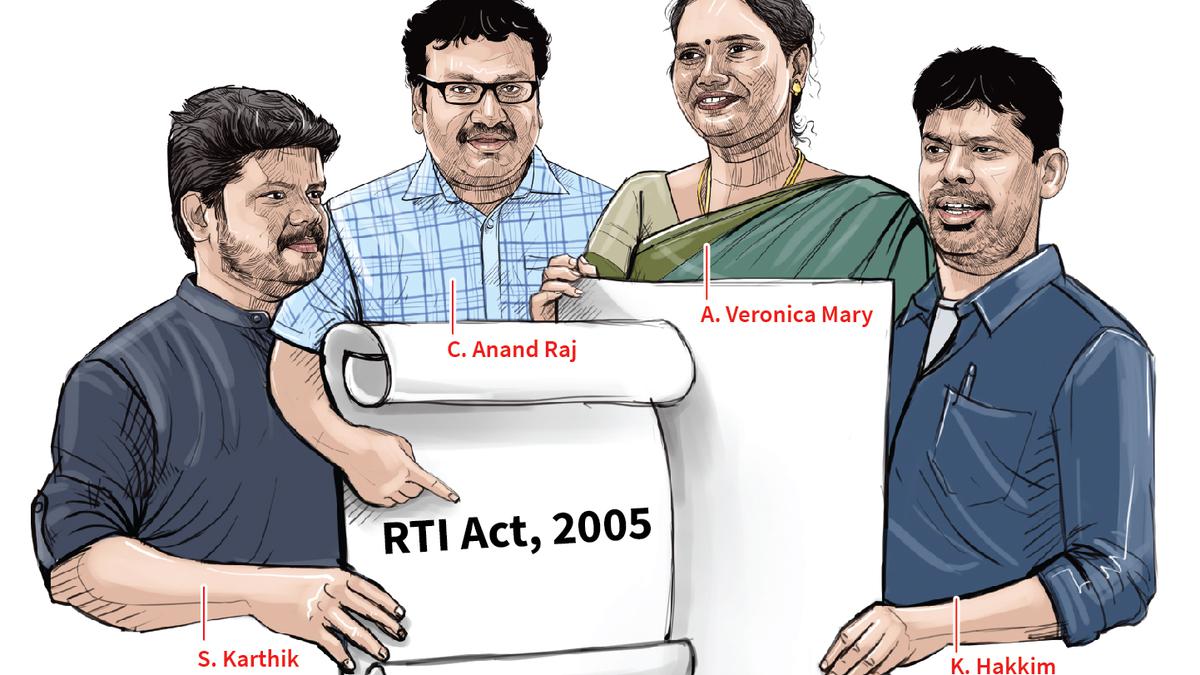
RTI, a weapon waiting to be wielded
The Hindu
Madurai RTI activists use Right to Information Act to expose government inefficiencies and bring about positive change.
RTI – Right to Information Act, 2005 has been one of the powerful tools for the citizens of the nation for more than 18 years now. The information obtained through the RTI Act has not only resulted in creating a sustainable amount of transparency in the government system but also had incited fear among public servants that they are being monitored by the people.
The RTI Act, 2005, which was achieved after a long struggle by many civil society organisations who wanted to empower citizens, promote openness and accountability in government agencies through which they believed they could ensure a check and balance in the society to make the Indian democracy truly functional for the people.
The Act had not just enabled the public to obtain information from various departments of the public sector but had also nurtured people across the country to question the government through the information they had gathered. A place like Madurai located in the southern-most part of the nation, has been a forerunner in creating social changes through the Act.
For many people like C. Anand Raj and his wife A.Veronica Mary of Madurai, the RTI Act has proved to be an important tool to expose some of the crucial details in the health sector.
During 2009, Mr. Anand Raj witnessed bodies of 17 people, including children, stacked inside an an ambulance parked outside the mortuary of Government Rajaji Hospital (GRH). This, he said, was the key moment in his long journey with the RTI Act. “The visual incited me to know about the total number of child deaths that was recorded at the hospital, but the doctors refused to divulge it to me. With the scarce knowledge I had about the RTI Act in 2010, I decided to seek the data and succeeded. The reply said about 800 deaths took place in the hospital in a year,” he says.
This data helped him take the issue to the higher officials and elected representatives, which gave a defining value to the data as steps were taken by the government to reduce neo-natal deaths through construction of a Comprehensive Emergency Obstetric and Newborn Care (CEmONC) building, he adds.
He insists on the importance of field work for activists like him to get to the root cause of an issue. Explaining one such incident, Ms. Mary says that when they were studying the issue of a water contamination at Narikudi in Virudhunagar distict, they saw a panchayat leader who was bedridden for over a year, without the means to get treatment.





















 Run 3 Space | Play Space Running Game
Run 3 Space | Play Space Running Game Traffic Jam 3D | Online Racing Game
Traffic Jam 3D | Online Racing Game Duck Hunt | Play Old Classic Game
Duck Hunt | Play Old Classic Game











